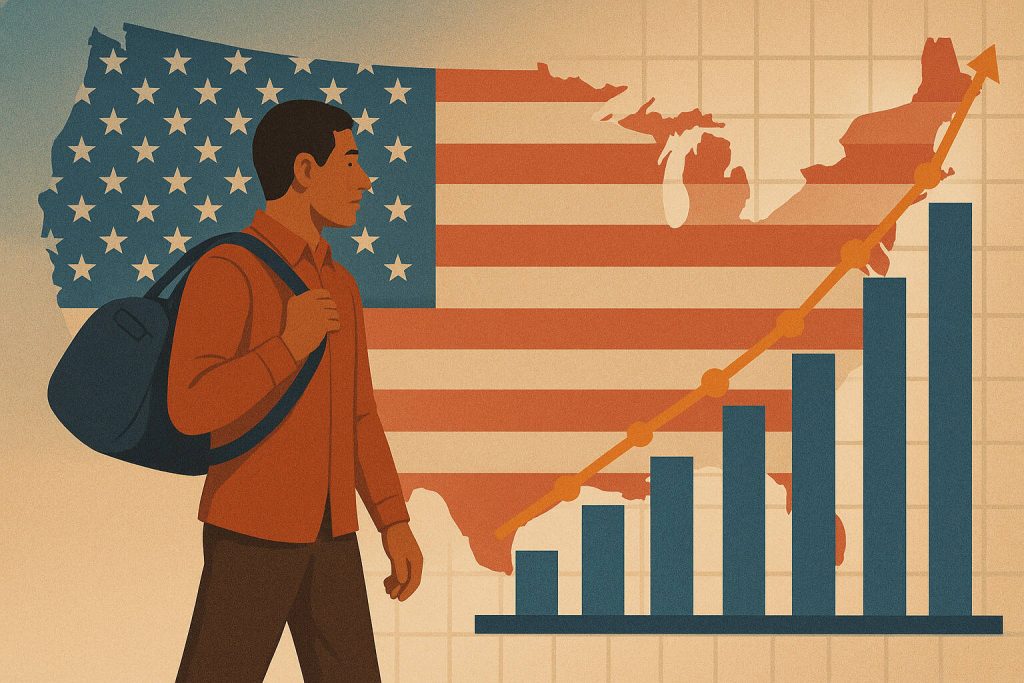
Social Program and Economy in Society
Understanding economic trends is essential in shaping social programs, as changes in the economy directly affect the welfare of citizens and the government’s capacity to provide support. A robust economy leads to higher income and more opportunities, enabling the expansion of social services like education, healthcare, and housing. On the other hand, an economic slowdown presents challenges in maintaining these programs. Studying how the economy affects social programs inspires policymakers and leaders to develop strategies that improve people’s lives.
During economic downturns, institutions must act swiftly to meet people’s needs. Social programs are designed to support the poor and those affected by crises, serving as a social safety net through financial aid, healthcare services, and other forms of assistance. The economy’s impact is seen not only in terms of income but also in overall quality of life. Therefore, analyzing the link between the economy and social programs is critically important.
The relationship between the economy and social programs is complex and requires careful analysis, as it connects macroeconomic policies with micro-level impacts on communities. Government decisions on taxation, spending, and other economic policies directly affect their ability to fund social programs that support vulnerable sectors. This study of economic-social dynamics provides a path toward more effective governance and equitable distribution of resources.
Economic Shifts and Social Programs
Economic changes—such as fluctuations in gross domestic product (GDP), unemployment rates, and other indicators—greatly influence how social programs are funded and implemented. During economic growth, there are more resources to invest in social services. Conversely, in times of recession, emergency relief programs are prioritized to help those in need. This dynamic shows how economic conditions inform public sector decision-making.
A growing economy usually results in increased tax revenues, providing the government with funding for projects. Higher income enables more investments in education, health, and welfare, leading to better quality of life. However, during slowdowns, budgets must be adjusted, often altering the structure and scope of social programs.
Legislative bodies respond to these shifts by modifying policies and budgets. For example, unemployment benefits may be expanded during times of high joblessness, or more funding may be directed toward healthcare during health crises. Social program changes often stem not just from internal policy choices, but also from external economic forces shaping national priorities.
Understanding Economic Trends
Tracking economic trends is crucial to understanding how the business climate affects social programs. Inflation, interest rate changes, and currency fluctuations are some economic variables that directly impact government and institutions. A clear grasp of these trends leads to more responsive and effective societal support measures.
By analyzing data and historical trends, policymakers can plan strategies that shield citizens from adverse economic effects. For instance, in times of rising inflation, governments may implement programs to help low-income earners maintain their purchasing power. Analytics enhances the effectiveness of policy formulation.
This type of analysis also supports long-term strategic planning. Anticipating economic changes helps lawmakers and planners design resilient and adaptable social programs. An analytical approach to economic trends is vital for sustainable development and fair resource distribution.
The Effect of Globalization on Social Programs
Globalization brings widespread economic changes that significantly influence social programs. As nations become interconnected through a global marketplace, financial and economic policies grow more interdependent. In this context, social programs must align their goals and methods to maintain balance amid global competition.
Globalization also fosters higher levels of international collaboration in social welfare. Countries can work together to address widespread issues like poverty and health through shared resources and best practices. These global networks provide deeper insights into challenges and solutions beyond the reach of a single country.
Adapting to globalization emphasizes the need for flexibility and responsiveness. Locally focused social programs must also reflect global realities, resulting in more inclusive development strategies. The integration of local and global perspectives is key to building resilient and sustainable communities.
The Role of Government in Shaping Social Programs
The government plays a major role in crafting and implementing social programs, especially amid economic changes. Government policies and laws directly impact citizens’ quality of life. With in-depth analysis of economic trends, governments can revise their strategies to meet the needs of every sector.
Lawmakers continually adjust plans to ensure social programs reflect current economic realities. These initiatives aim to improve livelihoods through targeted support, financial aid, and services for education and health. Responsive government action is the foundation of a strong social welfare system.
Despite challenges, governments advance social programs through innovation and strategic planning. Using data analytics and modern technology improves funding and implementation efficiency. In this way, governments become pillars of development and positive change in society.
Focusing on Sustainable Development of Social Programs
Sustainable social programs depend on the ability to adapt to economic changes. Developing such programs requires a careful balance between immediate needs and long-term goals. Providing services like education, health, and housing needs a stable foundation supported by sustained economic growth.
These programs not only address current issues but also prepare for future challenges. Built on long-term planning, every initiative is evaluated for its lasting impact on communities. Thus, sustainability becomes a core principle of social progress.
Implementing sustainable initiatives requires participation from all sectors—government, private institutions, and civil society. Cooperation strengthens the effectiveness of programs and builds more resilient communities. Sustainable development is not just a goal; it’s a commitment to a better future.
The Role of Technology in Improving Social Programs
Modern technology plays a crucial role in enhancing social programs amid economic shifts. With data analytics, cloud computing, and digital platforms, governments and institutions can better monitor, adjust, and grow programs. Technology allows for faster, more accurate policy development.
These tools also improve transparency and accountability. Easy access to data ensures integrity and efficiency in public services. Digital transformation marks a significant step toward modern social program management.
Moreover, real-time monitoring enables immediate action when issues arise. Technological integration leads to more effective and sustainable social support systems for all.
Ensuring Public Awareness and Participation
Public participation is vital in shaping and developing social programs. Engaging with citizens clarifies the issues communities face and ensures their needs are addressed. Gathering feedback and opinions helps craft more meaningful policies.
Surveys, town halls, and online forums are key tools for public engagement. These activities foster a stronger relationship between government and citizens, making policy-making more inclusive. Active public involvement strengthens trust and transparency in managing social programs.
Incorporating public opinion into legislative agendas increases accountability. When decisions are based on real community needs, results become more impactful. Public participation paves the way for responsible progress and societal change.
Addressing Global Challenges in Social Programs
Globalization and ongoing economic change require social programs to adapt their strategies. Changes in global markets, environmental issues, and migration patterns directly influence how social programs are planned and executed. Meeting these challenges requires innovative solutions and broad cooperation.
International collaboration helps exchange best practices and address global issues. Through partnerships, countries access shared knowledge and resources to build more effective programs. A global perspective enables better responses to modern challenges.
These global challenges are not confined to one nation—they impact humanity as a whole. Policies based on international standards help ensure long-term impact and cross-border resilience.
Ensuring Responsible Fund Management
Proper fund management is critical to effective social programs, especially amid economic changes and global challenges. Responsible budgeting ensures that services address real community needs. Good management emphasizes transparency and public trust.
Implementing programs requires thorough evaluation of available resources and careful planning to balance current needs with long-term goals. Investing in high-impact initiatives ensures that funds produce meaningful benefits.
Advanced analytics and data-driven decisions improve fund allocation. With performance metrics and cost-benefit analysis, managers can make informed choices that boost efficiency and amplify social impact.
Evaluating Economic and Social Impact
Assessing the impact of social programs reveals their contribution to economic and social development. Data and feedback from beneficiaries provide concrete evidence for program improvement. These evaluations promote transparency and ensure policies are addressing public needs.
Regular monitoring and evaluation allow program managers to refine strategies and improve services. Thorough outcome studies lead to better policy implementation and positive changes in people’s lives.
Metrics such as employment rates, poverty levels, and access to education provide a clear view of overall impact. This continuous evaluation supports ongoing improvements and helps create new solutions for the future.
The Role of Technology in Social Programs
Modern technology enhances the implementation and development of social programs. Advanced software, data analytics, and digital platforms allow for more efficient monitoring and evaluation. Technology raises transparency and quality in managing initiatives.
Technology also simplifies data collection and analysis for identifying community needs. Real-time monitoring systems provide immediate feedback, enabling quick adjustments. It serves as a tool for smoother program operation and faster development of solutions.
Digital tools also strengthen communication between stakeholders. These platforms improve reporting and sharing of program outcomes, encouraging inclusive progress. In this way, technology becomes a vital bridge for effective social program execution.
Changing Global Economy and Its Effects
Global economic changes have a major impact on social programs. Market fluctuations affect both funding availability and demand for social services. A shifting economic landscape presents both challenges and opportunities for policymakers.
During global economic booms, more resources can be directed toward expanding services like education, health, and housing. Conversely, during downturns, tighter budgets focus spending on programs that offer immediate relief. These shifts show how global trends shape social policy.
These economic changes affect not just governments, but also everyday life. Social programs must adapt to protect and support affected sectors. Understanding global trends helps contextualize social programs within broader development efforts.
A Long-term and Sustainable Progress
The dynamic relationship between economic trends and social programs underscores the transformative power of data-driven policies and strategic resource management in achieving a more inclusive and prosperous society. It fosters collaboration among governments, communities, and technology to address social needs while ensuring long-term stability and sustainable progress.
Every adjustment made to social programs in response to economic shifts serves as a reminder that adaptability and foresight are essential to successful governance. Policymakers must balance immediate relief with long-term development in a way that benefits everyone.
Ultimately, embracing these changes paves the way for a resilient future, where social programs evolve to meet the challenges of modern economies—nurturing a society built on transparency, accountability, and shared growth.


